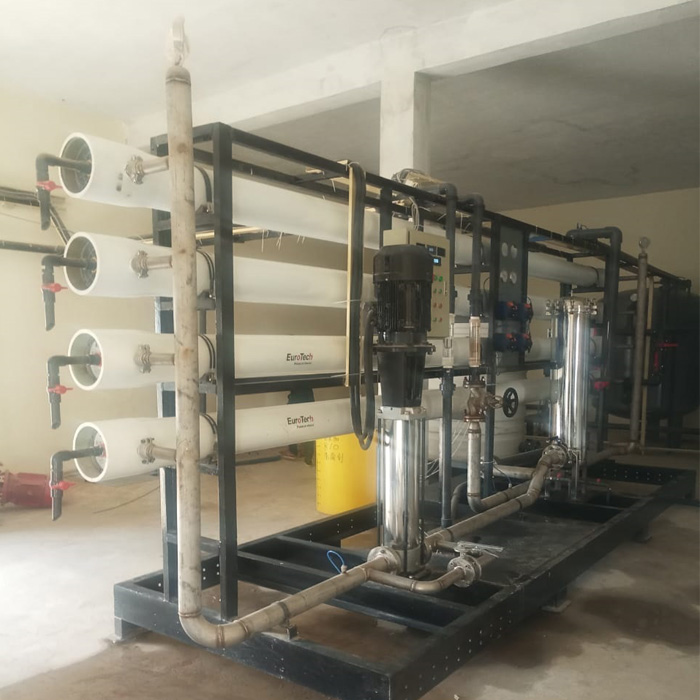Overview of Industrial Reverse Osmosis Systems
Industrial Reverse Osmosis (RO) Plants are essential systems designed to purify water for various industrial applications. Utilizing the principles of reverse osmosis, these plants remove impurities, contaminants, and excess minerals from water, providing high-quality, clean water suitable for manufacturing processes, cooling systems, boiler feed water, and other industrial uses.
Importance of Industrial RO Plants
The demand for clean water in industries is growing due to stringent regulations and the need for sustainable practices. Industrial RO Plants play a crucial role in several areas:
Water Quality Improvement
These systems ensure that water meets specific quality standards necessary for diverse applications, ranging from pharmaceuticals to food processing.
Cost Efficiency
By treating and reusing water, industries can significantly reduce costs associated with water procurement and wastewater treatment.
Environmental Compliance
Industrial RO Plants assist companies in adhering to local and international environmental regulations regarding water usage and discharge.
Process Optimization
By providing high-purity water, these plants are essential for sensitive processes that require the absence of contaminants, thereby enhancing overall operational efficiency.
Components of Industrial RO Plants
An Industrial RO Plant consists of several key components that work together to ensure effective water purification:
Pre-treatment System
This system often includes sediment filters, carbon filters, and softeners to remove larger particles, chlorine, and hardness, preventing damage to the RO membranes.
RO Membrane
The heart of the RO system, these semi-permeable membranes allow water molecules to pass through while rejecting contaminants such as salts, heavy metals, and microorganisms.
High-Pressure Pump
This pump is crucial for applying pressure to the feed water, allowing it to pass through the RO membrane effectively.
Post-treatment System
After the RO process, post-treatment systems may include UV disinfection, mineralization, or pH adjustment to ensure the water is suitable for its intended use.
Control System
A sophisticated control system monitors and manages the entire RO process, ensuring optimal performance and safety.
Applications of Industrial RO Plants
Industrial RO Plants serve various industries, including:
Pharmaceuticals
These plants provide high-purity water for drug formulation and other processes where water quality is critical.
Food and Beverage
They ensure the quality and safety of water used in food processing, brewing, and beverage production.
Power Generation
Industrial RO Plants supply high-quality water for cooling towers and boilers to improve efficiency and prevent scaling.
Electronics
They provide ultra-pure water for semiconductor manufacturing and other processes where contaminants can affect product quality.
Textiles
These systems ensure the water used in dyeing and finishing processes is free from impurities that could affect color and quality.
Benefits of Industrial RO Plants
The implementation of Industrial RO Plants offers numerous advantages:
Cost Savings
By reducing reliance on municipal water supplies and minimizing wastewater treatment costs, industries can achieve significant savings.
Scalability
Industrial RO systems can be designed to accommodate varying capacities, making them suitable for both small and large-scale operations.
Sustainability
Utilizing RO technology promotes water conservation by enabling the reuse of treated water, aligning with sustainable business practices.
Enhanced Product Quality
With high-quality water, industries can improve the quality of their products, leading to higher customer satisfaction and reduced rejection rates.
Minimal Environmental Impact
By treating and reusing water, Industrial RO Plants contribute to reducing the overall environmental footprint of industrial operations.
Maintenance of Industrial RO Plants
Regular maintenance is essential for the optimal performance of Industrial RO Plants. Key maintenance practices include:
Routine Monitoring
Regularly checking system parameters such as pressure, flow rates, and water quality ensures optimal operation.
Cleaning of Membranes
Periodically cleaning the RO membranes removes fouling and scaling, prolonging their lifespan and maintaining efficiency.
System Calibration
Ensuring that the control systems are calibrated correctly is vital for accurate monitoring and performance assessment.
Replacement of Components
Timely replacement of filters, membranes, and other components prevents system failures and downtime.
Conclusion
Industrial RO Plants are vital for providing clean, high-quality water across various industries. By investing in these advanced purification systems, businesses can improve operational efficiency, reduce costs, and comply with environmental regulations while contributing to sustainable water management practices. As the importance of water quality in industrial processes increases, the role of Industrial RO Plants will continue to grow, supporting industries in meeting their production needs while safeguarding our precious water resources.
